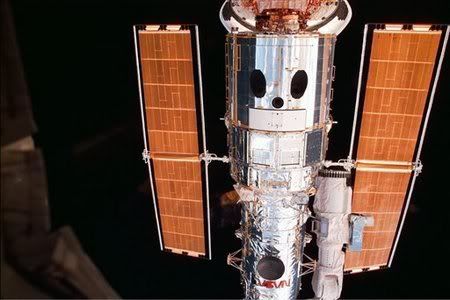
While other scientific work can still be done by the aging observatory, the unit that failed, the Advanced Camera for Surveys, is the one most scientists depend upon. NASA scientists say they expect to be able to restore just one-third of its observation ability, probably by mid-February.
"We're not optimistic at all" about returning it to full function, said Dave Leckrone, a senior scientist on the Hubble at Goddard Space Flight Center in Greenbelt.
However, all is not lost. Next year NASA plans to send space shuttle astronauts to upgrade the popular telescope in a mission to install new instruments that will actually exceed the capabilities of the current system.
In the meantime, astronomers must fall back on the 16-year-old Hubble's other instruments.
"So, clearly the observations will continue, science will continue, but it's a great loss, no doubt. It's a great loss because this was a fantastic camera that just produced incredible science," said astronomer Mario Livio at the Space Telescope Science Institute, which coordinates use of the Hubble by the scientific community. He called the broken camera system a "serious workhorse."
The Hubble's main camera shut down over the weekend, the third outage in less than a year for the instrument. An initial investigation determined its backup power supply had failed, NASA said.
Installed during a March 2002 servicing mission, the Advanced Camera for Surveys increased Hubble's vision and has provided the clearest pictures yet of galaxy formation in the very early universe. The instrument consists of three electronic cameras, filters and dispersers that detect light from the ultraviolet to the near infrared.
It was the most heavily in demand from the astronomical community and accounted for two-thirds of the latest proposals for observing time on the Hubble, said Preston Burch, associate director and program manager for the Hubble Space Telescope at Goddard.
The ACS had been switched over to a backup power supply in June when its main power supply malfunctioned. In September, it automatically shut down again as operators were switching between two of its three instruments. Investigators believe debris stuck in a switch caused a voltage drop that shut down the instrument.
"I think it's important to remember that ACS was designed to work for five years. That's typically the design life of most of these instruments and it's pretty well met that," Burch said."




No comments:
Post a Comment